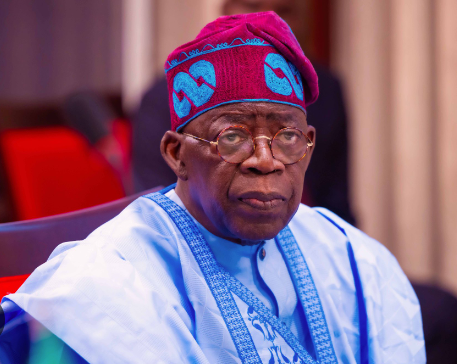
Between 2024 and 2027, Nigerians will be evaluating the performance of government ministries, departments, and agencies based on a detailed matrix comprising 204 deliverables and 888 indicators, as observed by NewsNow.
These deliverables encompass a variety of government policies, programs, and projects.
This initiative follows the launch of the Citizens’ Delivery Tracker by the Presidency on April 8, aimed at establishing a robust feedback mechanism between citizens and the government.
The Presidency has emphasized that the tracker will ensure ministers and heads of government agencies adhere to the set deliverables and key performance indicators (KPIs) across the eight priority areas identified in President Bola Tinubu’s administration.
The Citizens’ Delivery Tracker focuses on priority areas such as economic stability, infrastructure, social welfare, and education. It assigns specific deliverables and KPIs to various Ministries, Departments, and Agencies (MDAs) for the short term (2024) and long term (2027).
For example, in the realm of economic reforms aimed at fostering sustained and inclusive growth, entities like the ministries of finance, budget, and national planning, the Presidential Committee on Consumer Credit, and the Presidential Fiscal Policy and Tax Reforms Committee have been allocated 28 deliverables and 53 indicators. These include targets such as achieving a Tax-to-GDP ratio of 15% and increasing Internally Generated Revenue (IGR) to N27.17 trillion.
Assessment criteria for the Ministries of Interior, Police Affairs, and Defense involve six deliverables and 65 KPIs, which includes the enrollment of at least 88,000 inmates with National Identity Numbers.
Additionally, ministries responsible for power, petroleum resources, solid minerals, and steel development, among others, are tasked with driving energy and natural resource utilization for sustainable development through 27 deliverables and 130 indicators, including targets like producing a minimum of 1.4 million barrels of crude oil per day.
During the recent launch of the Tracker in Abuja, President’s Special Adviser on Policy and Coordination, Hadiza Bala-Usman, highlighted that the platform will undergo continuous enhancements to facilitate user-friendliness and maintain an effective feedback loop between citizens and the government.
These enhancements will also allow citizens to monitor the progress of constituency projects allocated to Senators and members of the House of Representatives.
In determining the deliverables and KPIs, Bala-Usman, who heads the Central Coordination Delivery Unit, mentioned that extensive bilateral discussions were held with all Ministers, Permanent Secretaries, and their technical teams over a six-week period.
She explained, “The bilateral sessions focused on aligning the mandates of the ministries with the Presidential Priority Areas to establish the final deliverables and KPIs.
“For each priority area, specific deliverables and KPIs were agreed upon, forming the foundation for the performance commitments signed by all ministers and Permanent Secretaries with the President in November 2023.
“These parameters will guide Quarterly Assessments and Annual Scorecards to be presented by the Central Coordination Delivery Unit to the President.”
Furthermore, the presidential aide described the Citizens’ Delivery Tracker as a one-click platform for President Tinubu to monitor his ministers’ performance in real-time from his office.
During a cabinet retreat for ministers, presidential aides, permanent secretaries, and senior government officials in November 2023, President Tinubu emphasized the reinforcement of the Central Coordination Delivery Unit to involve citizens actively in the government’s monitoring and performance evaluation processes.
In response to these developments, the Senior Special Assistant to the President on Media and Publicity, Temitope Ajayi, stated, “The government recognizes the importance of citizens as key stakeholders in monitoring and evaluating performance.
“Nigerians now have the ability to track the progress of ministers, department heads, and government agencies in delivering on the administration’s eight priority areas.”
